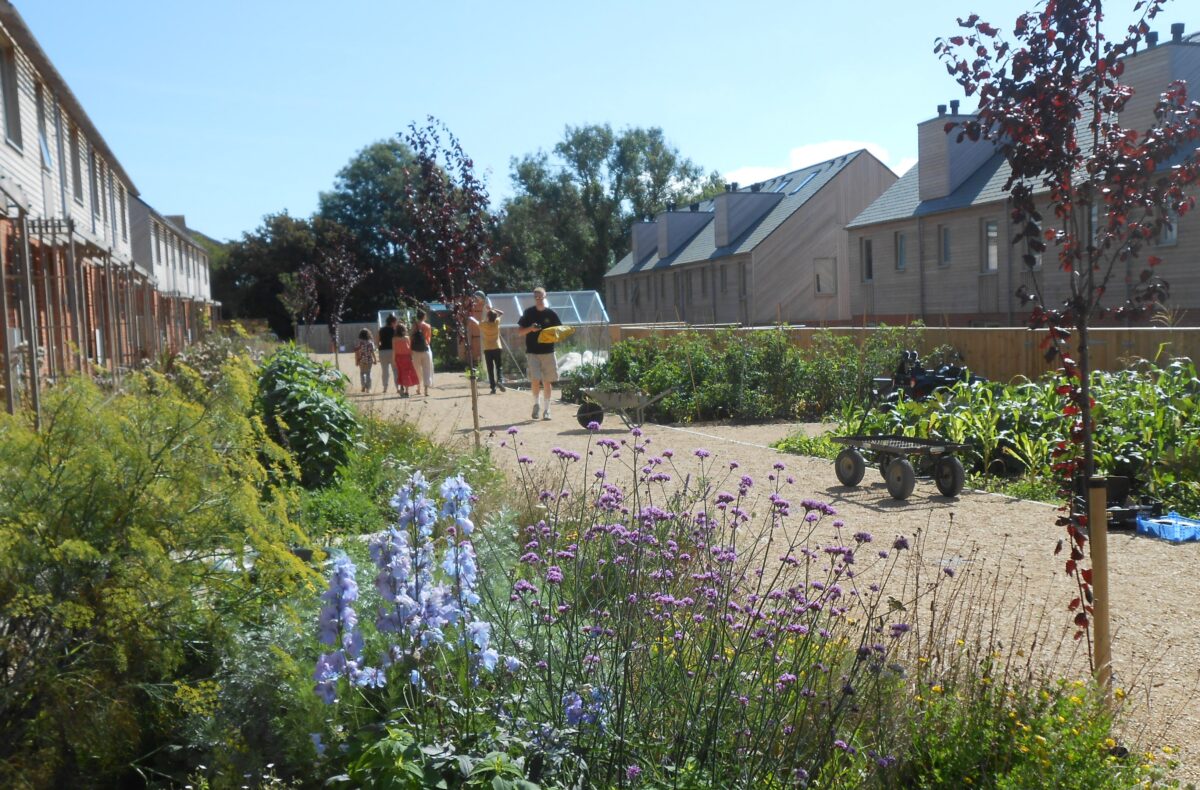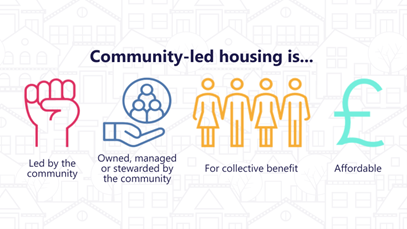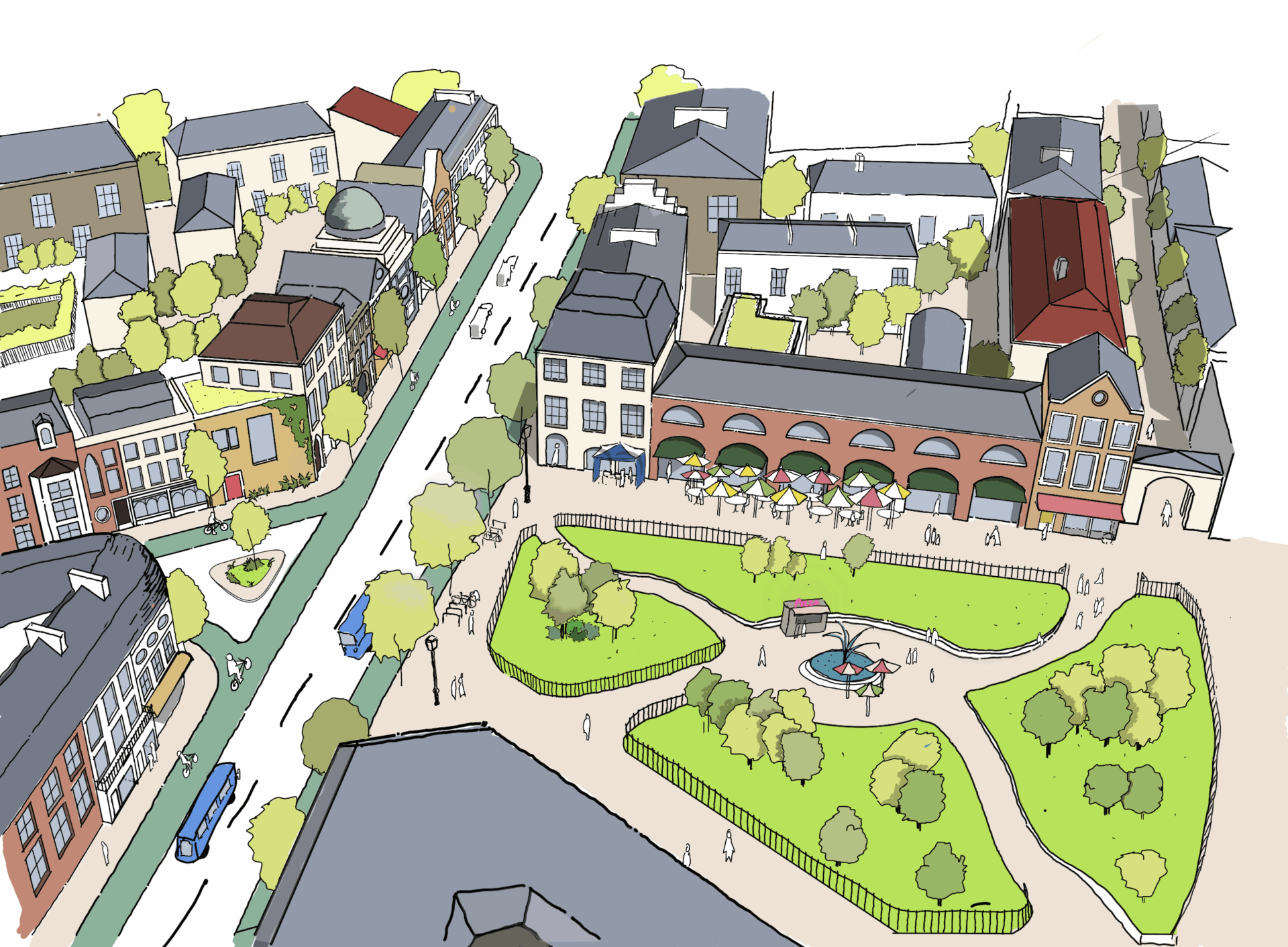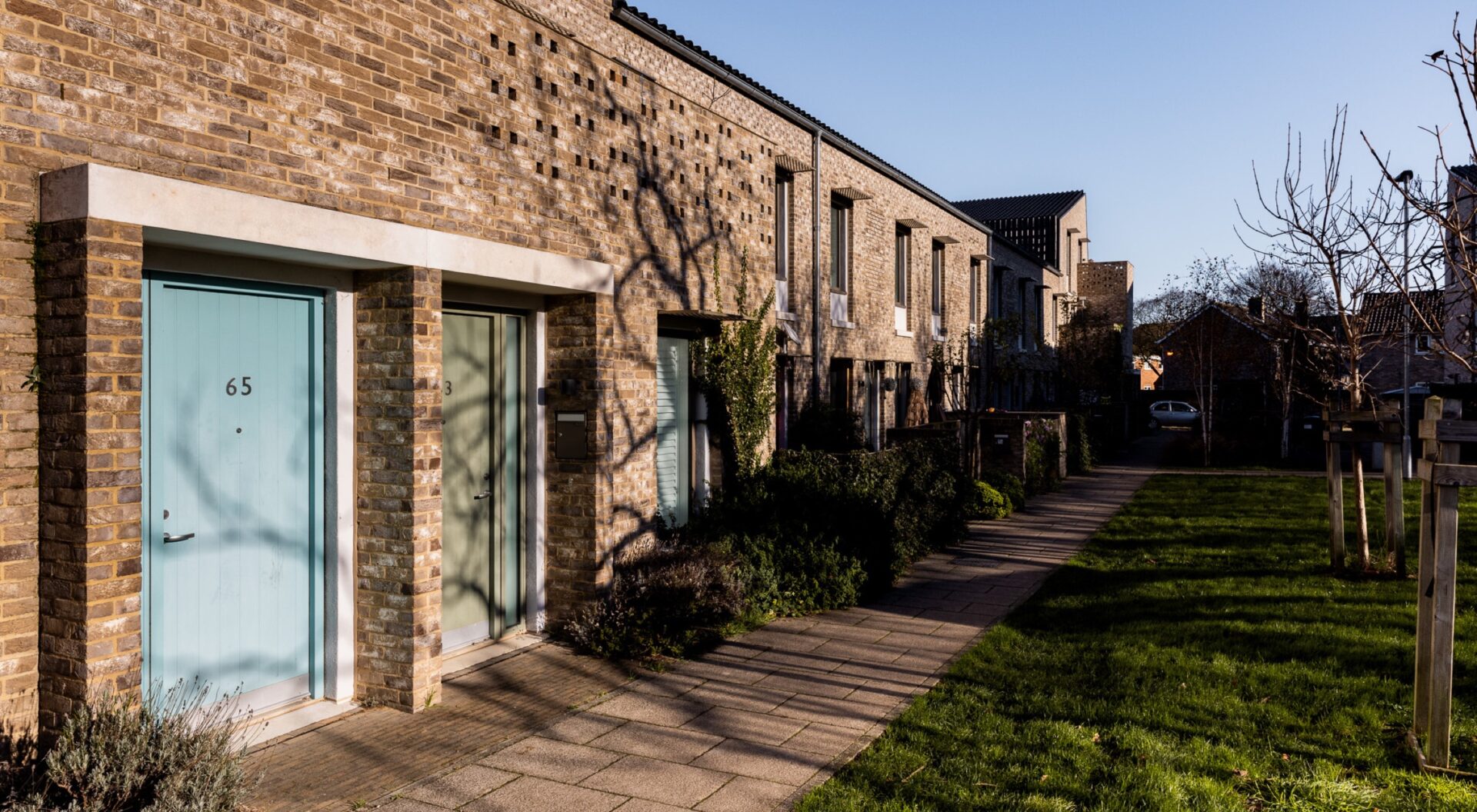News
Working together to explore alternative forms of living: Developing a community-led housing network in Wales

Homes are the foundation of our lives. They are essential to our physical and mental health and wellbeing. Yet, very often, the housing system fails people who need it the most. In simple terms, we do not have the right number or type of homes, or these are not truly affordable for many people. Since late 2023, a collaboration started between Cwmpas, Co-op Dan Do and a group of researchers at Cardiff University. This collaboration led to the securing of fundings to organise a series of workshops to discuss the current state and future challenges of Community-led housing in Wales, around three main topics: 1. Benefits and Affordability, 2. Land and Finance, and 3. Design and Governance.
To date these events have been attended by a wide range of people with lived experience of community-led housing, as well as professional practitioners, representatives from professional organisations, government officers, and academics.

Our approach to the project is informed by Participatory Action Research Principles and is inspired by Brazilian educator and philosopher Paolo Freire’s (2017 [1970]) call to work with rather than for communities – also a key principle of a placemaking approach. The co-design of the work promotes practical usefulness for everyone involved, which we believe is key in community-led housing projects as they require involvement of multiple stakeholders and navigating a complex universe of policies, procedures, and practices.

The term community-led housing encompasses several models including Co-operative Housing, Cohousing, Community Land Trusts, Self Help Housing and Tenant Management Organisations. It involves people coming together to decide what kind of homes and communities they want to live in. Communities play a central role in creating decent and affordable homes. Community-led housing schemes are characterised by providing housing that is affordable in perpetuity thereby providing far greater certainty to local communities in meeting housing needs and offering new opportunities and benefits for sustainable local economic, social, and environmental development. It is not a one-size-fits all model, and in fact it can be adapted and moulded to create bespoke design proposals that respond to specific spatial and social factors in local communities.

There is a clear synergy between community-led housing and placemaking, particularly since both put people at the heart of design and development processes, with a clear aim to improve people’s lives and foster a sense of belonging. The Design Commission for Wales Placemaking Guide states that:
‘’Placemaking places people at the heart of the process and results in places that are vibrant, have a clear identity, and where people can develop a sense of belonging’’ (Placemaking Guide 2020 DCfW)
Some characteristics of community-led housing that help put placemaking into practice are demonstrated by the following ideas:
- Community as the Expert – residents are the experts in the communities in which they live or wish to live.
- Creating places, not just houses – placemaking is at the heart of every decision in the development of community-led housing, as communities strive to create places where they can thrive. A shared vision and principles are instrumental to overcome obstacles with a willingness to refine, adapt and change without compromising the creation of ‘place’.
- Partnerships – developing community-led housing involves establishing links and networks with a variety of people and organisations to develop joint responsibilities that go beyond traditional client-professional transactional models.
- ‘Placekeeping’ – placemaking never ends but instead evolves into placekeeping. Places and people are always changing, and so spaces need to adapt to new needs and consider long-term sustainability.
Placemaking has become even more critical to everything that we aspire to achieve in our communities. Arguably, the impact of the pandemic has allowed us to reflect on where we spend most of our time, appreciating spaces in our communities, and contemplating how we can make them better. It is these personal and community-based experiences that are central to how our communities evolve.
We are hopeful that our project helps to lay the groundwork for fertile conversations between key stakeholders in community-led housing development processes, as well as impactful research that can be used by them to facilitate the creation of community-led housing developments following a placemaking approach.
Endnotes:
Cwmpas, previously known as the Wales Co-Operative Centre, is a development agency focused on building a fairer, greener economy and a more equal society, where people and planet come first. Established in 1982, Cwmpas have made it their mission to change the way our economy and society works. Cwmpas is a not for profit organisation which supports Wales’ economic growth, helps communities to become stronger and more inclusive and in turn supports people in Wales to improve their lives and livelihoods by delivering a range of projects which help social businesses to grow; help people to learn digital skills, help people set up their own co-operatives in care and housing and help people to invest in their community.
Cwmpas is a signatory to the Placemaking Wales Charter.
Within Cwmpas, the Communities Creating Homes programme exists to support people and communities to develop their own community-led housing schemes. It is funded by the Nationwide Foundation and Welsh Government. Further information on the programme can be found through this link: Communities Creating Homes – Cwmpas.
Co-op Dan Do are a not-for-profit community group wishing to own and develop land for collaborative enterprise and housing. We aim to set up affordable, low impact living in eco homes, set in a permaculture landscape designed for beauty, bio-diversity and productivity. Dan Do will develop around 20 low-impact eco homes for people, at least 50% in housing need (as defined by local authorities). A mixed tenure development, some people will rent, others will own a proportion of their home. A creative and supportive, multi-generation community, we will democratically include all members in the decision-making.
Cardiff University is a member of the Russell Group, a group of 24 leading UK research intensive universities. This project ‘Alternative forms of living: Developing a community-led housing network in Wales [No. 525431]’ is funded by the Arts & Humanities Research Council (AHRC) through their Impact Acceleration Account (IAA) and aims to disseminate exiting research and support the creation of a community-led housing network. The research is hosted by the Welsh School of Architecture, with support from the School of Geography and Planning, and aligns with the university’s civic mission.
References:
Freire, P. 2017 [1970]. Pedagogy of the Oppressed. UK: Penguin Random House.
Design Commission for Wales (2020). Placemaking Guide.


